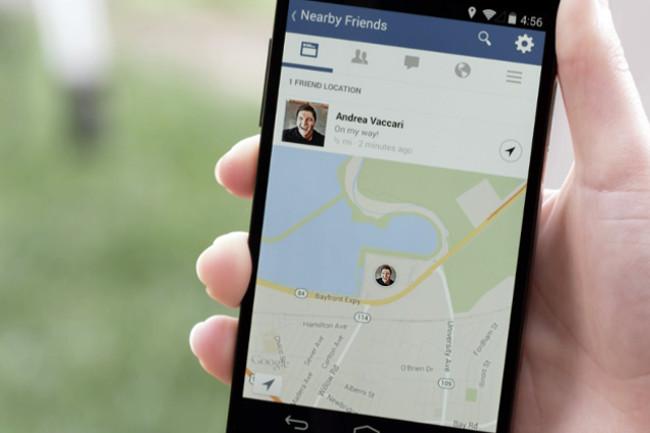
Facebook is introducing Nearby Friends, a new feature that will send notifications to your friends whenever you’re nearby them. Before you protest and complain about the violation of your privacy, be informed that you would have to turn on this feature yourself before your location gets sent out to the social network.
“Nearby Friends is an optional feature. You can choose who can see if you’re nearby (for example: your friends, close friends or a specific friends list) and you can turn it on and off at anytime,” the Facebook said in a press release.
The feature mimics existing services like Foursquare. Before it could kick in, both you and your friend(s) would have to turn on Nearby Friends and share your locations with each other. The service also allows you to share your exact location to a friend for a specified length of time. Let’s say you want to share your location with a friend for only 10 minutes. During that time, your exact location would show up on a map so you can be found more easily. At the end of the 10 minutes, the service cuts itself off automatically, giving you back your stealthy existence.
If you want to track your friends while they’re traveling, Facebook has made that possible, too. Let’s say your friend’s walking along a street in Paris that you’ve already been to, you can send them unsolicited recommendations for restaurants and bars. No word yet on how annoying that can be.
There’s no solid release date yet for the feature, but Facebook says that Nearby Friends will be available on Android and iPhone in the U.S. over the coming weeks.
Editors' Recommendations
- How to remove location data from your iPhone photos
- Google’s Nearby Share just copied one of Apple’s best features
- Google readies Nearby Share upgrade to catch up with AirDrop
- Apple Fitness+ now lets you work out with your friends
- Which apps share your data the most?
